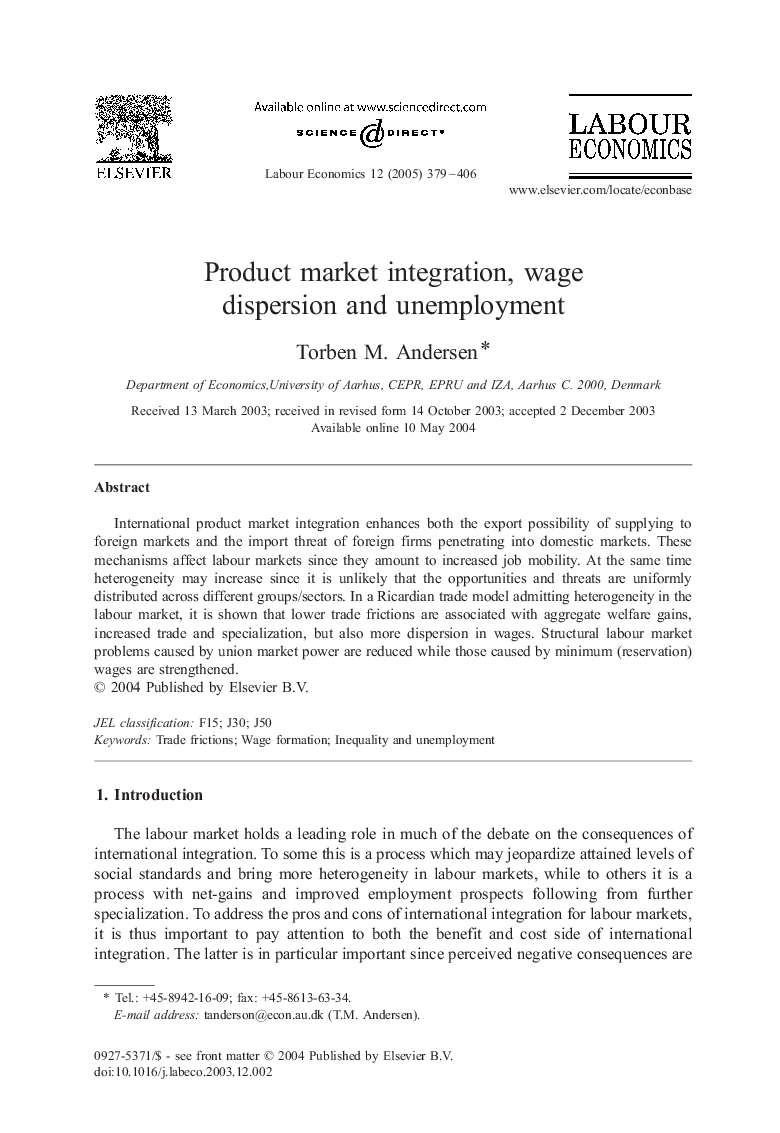| Article ID | Journal | Published Year | Pages | File Type |
|---|---|---|---|---|
| 10480393 | Labour Economics | 2005 | 28 Pages |
Abstract
International product market integration enhances both the export possibility of supplying to foreign markets and the import threat of foreign firms penetrating into domestic markets. These mechanisms affect labour markets since they amount to increased job mobility. At the same time heterogeneity may increase since it is unlikely that the opportunities and threats are uniformly distributed across different groups/sectors. In a Ricardian trade model admitting heterogeneity in the labour market, it is shown that lower trade frictions are associated with aggregate welfare gains, increased trade and specialization, but also more dispersion in wages. Structural labour market problems caused by union market power are reduced while those caused by minimum (reservation) wages are strengthened.
Related Topics
Social Sciences and Humanities
Economics, Econometrics and Finance
Economics and Econometrics
Authors
Torben M. Andersen,
